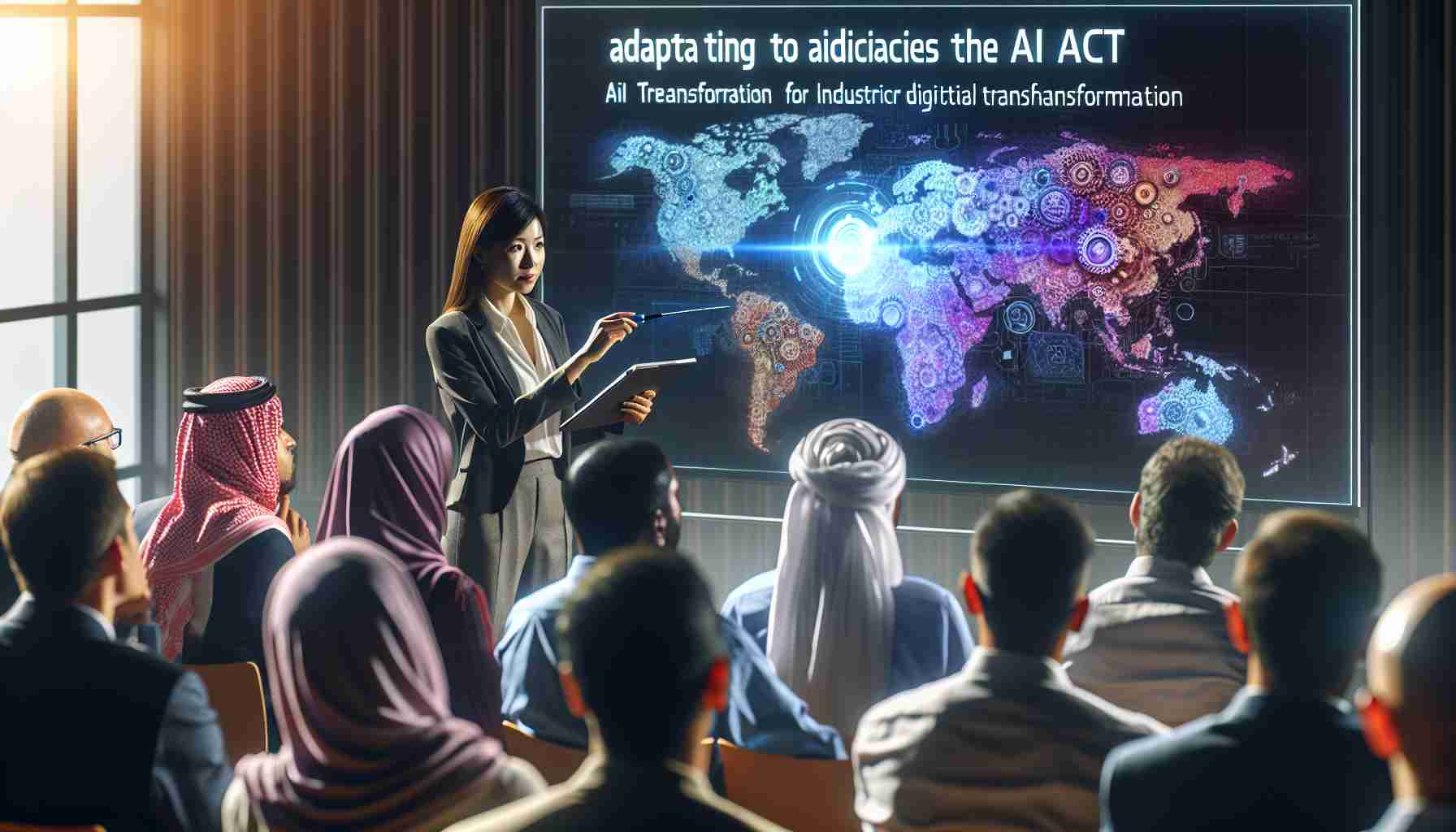In an initiative spearheaded by the Ministry of Industry, the Korean Agency for Technology and Standards (KATS) has taken a proactive step to educate and strategize in response to the newly ratified AI Act by the European Union. On the 18th of a recent month, a seminar titled ‘Understanding and Strategizing for the EU AI Act’ was successfully held. The event is part of a larger project aimed at bolstering industrial digital transformation (IDX) certification and demonstrating foundational work.
Leaders in Technology Address AI Challenges and Opportunities
With EU’s AI legislation enacted to mitigate the risks associated with the proliferating use of artificial intelligence technologies, businesses are required to develop AI systems in compliance with these standards to enter or operate within the EU market. These systems must undergo conformity assessment by designated EU bodies and obtain the CE marking as a seal of approval.
The Impending Global Influence of EU AI Legislation
While this legislation will be fully effective 24 months after its enactment, certain prohibitions related to AI will commence six months post-enactment, with general AI regulations following after 12 months. The seminar’s significance is accentuated by the global impact of the AI Act, underlining a pivotal moment for active engagement from relevant organizations and enterprises.
During the seminar, distinguished speakers including KTL’s Kwon Jong-won, head of the Industrial Intelligence Center, and The Lobel Corp.’s CEO Jung Ho-won shared their expertise. Kwon Jong-won emphasized the current challenges that companies face in adopting reliable AI technologies and assured government support through enhanced assessment frameworks to manage compliance with the EU’s regulatory environment effectively. This support is designed to nurture international competitiveness through informed digital policy.
Participants delved into understanding the EU AI Act’s concepts and requirements, developed strategies for AI conformity assessment, and outlined potential responses for domestic AI businesses and developers. The discussions aimed to pre-emptively address the risks and consequences, like potential fines, improving the industry’s ability to navigate the complexities of the legislation.
Moreover, KTL has been actively collaborating with the Ministry of Trade, Industry and Energy since June of the previous year to establish the Industry AI International Certification Forum. This forum is part of the push towards creating a private-led international certification system that incorporates AI at its core.
The European Union’s AI Act presents a comprehensive legal framework designed to ensure that artificial intelligence systems are developed and deployed in a manner that is safe and respects European values and fundamental rights. The Act categorizes AI applications into different risk categories, from unacceptable risk to high, limited, or minimal risk, each with its own set of regulatory requirements and obligations.
Regarding the topic of the seminar, “Seminar Provides Insight on Adapting to the AI Act for Industrial Digital Transformation,” here are some points that are relevant but not mentioned in the article:
Key Questions and Answers:
1. What are the central objectives of the EU AI Act?
The EU AI Act’s central objectives are to protect EU citizens from harmful AI practices, encourage the development of safe and lawful AI, and create a single market for AI systems across Member States.
2. How will the EU AI Act affect companies outside of the EU?
Companies outside of the EU that want to do business in the EU market will need to comply with the standards set by the AI Act. This includes AI systems that are placed on the EU market or whose outputs are used in the EU.
3. What are the implications for personal data protection within AI systems?
AI systems will have to comply with the General Data Protection Regulation (GDPR), which may entail strict data processing requirements to ensure privacy and data protection.
Key Challenges or Controversies:
– The cost and complexity of compliance for small and medium-sized enterprises (SMEs) could be a significant challenge.
– Balancing innovation with robust regulatory oversight to not stifle the evolution of AI technology.
– There are ongoing debates about the definitions of AI and the practicality of some provisions outlined in the Act, including the degree of human oversight required.
– International trade relations might be affected as entities outside EU borders are compelled to meet EU regulatory requirements.
Advantages and Disadvantages:
– Advantages: The AI Act aims to create high standards for AI systems, thereby leading to increased user trust. It can also prevent harmful AI practices while setting a global benchmark for AI regulation.
– Disadvantages: Compliance could be burdensome for some companies, potentially limiting innovation and leading to a divide between entities that can and cannot afford to meet the requirements.
In the context of the “Seminar Provides Insight on Adapting to the AI Act for Industrial Digital Transformation,” relevant organizations and businesses need to keep abreast of the developments and adjust their strategies and products accordingly.
For more information on the broader subjects touched upon in this article, you might visit the official websites of the European Commission (for the AI Act) and the International Organization for Standardization (for international standards related to AI):
– European Commission
– International Organization for Standardization
The URLs provided are for the homepages of these organizations, which should be valid and stable entry points for seeking relevant regulatory and standards information.
The source of the article is from the blog myshopsguide.com


